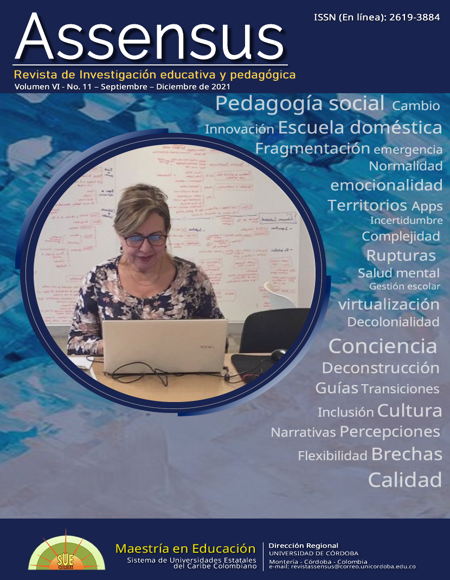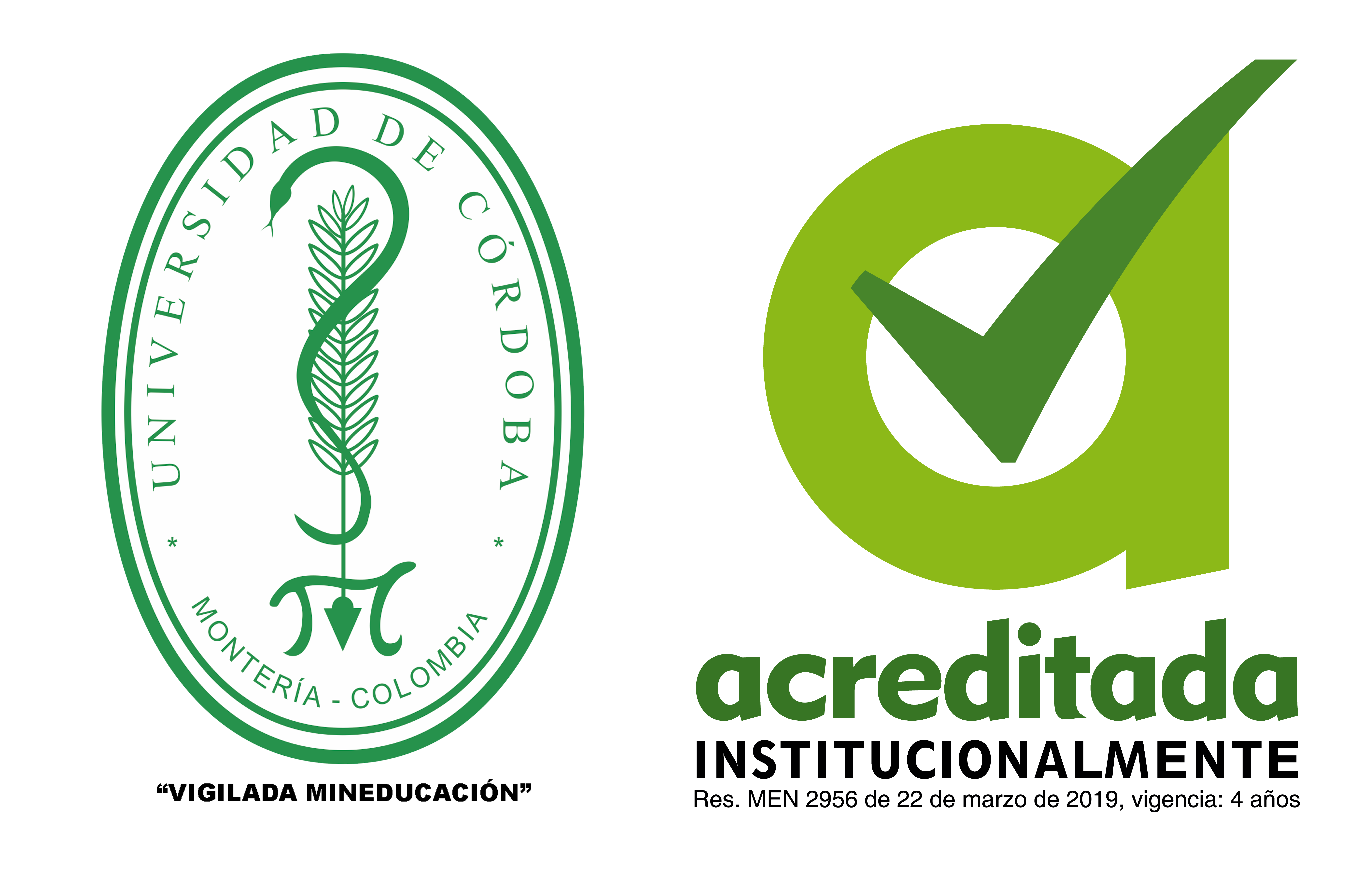Psychological well-being in nursing students in times of pandemics
Bienestar psicológico en estudiantes de enfermería en tiempos de pandemia
The Assensus journal has a Creative Commons license. The citation, use and partial or total reproduction of the contents is authorized by citing sources. For more information, see https://creativecommons.org/licenses/by-sa/4.0/deed.en
Show authors biography
Psychological well-being is considered as the proper functioning of a person's abilities, which are acquired through the experiences lived in their environment and which result from the positive changes experienced during their childhood. The objective of this research was to determine the level of psychological well-being and its relationship with socio-demographic variables in students of the nursing program of a Public University of the city of Santa Marta. Using an analytical empirical approach, the Ryff Psychological Well-being Scale was applied to a non-probabilistic sample of one hundred and two (102) students, between the ages of 16 and 25 years. In the results, a percentage of 33.3% of low level and 42.2% in the medium level of psychological well-being was found, this data being predominant in the students, in the dimensions of well-being, 52% were in the self-acceptance, likewise the dimensions of positive relationships, mastery of the environment and personal growth were located, and autonomy was at a high level with 58.8%, however, 57.8% in life purpose was located at a high level under. Regarding the relationship, with Pearson's Chi-square statistic, a significance of 0.010 of psychological well-being with employment relationship was presented, there were no differences between gender, educational level, economic income, marital status, type of housing and age.
Article visits 667 | PDF visits
Downloads
- Abella, M. & Marrero, B. (2018). Inteligencia emocional y ajuste psicológico en estudiantes: nivel académico y rama de estudios. Universitas Psychologica, 18(4), 1-14.
- Agrawal, S., Sharma, N. & Singh, M. (2019). Employing cbpr to understand the well-being of higher education students during covid-19 lockdown in India. Department of Humanities and Social Sciences, Malaviya National Institute of Technology, J.L.N. Marg, Jaipur, Rajasthan, India-302017. 1-13.
- Ballesteros, B., & Medina, A. (2006). Bienestar psicológico definido por asistentes a un servicio de consulta psicológica. Scielo, 239-258. Obtenido de http://www.scielo.org.co/pdf/rups/v5n2/v5n2a04.pdf
- Barraza, R., & Muñoz Navarro, N. (2016). Relación entre inteligencia emocional y depresión-ansiedad y estrés en estudiantes de medicina de primer año. Rev. chil. neuro-psiquiatr. , 55(1). Obtenido de http://dx.doi.org/10.4067/S0717-92272017000100003
- Behar, D. (2008). Metodología de la investigación. Recuperado de http://uapmetodologiadelainvestigacion.com/onewebmedia/Libro%20metodologia%20investigacion%20PDF.pdf
- Cardona, J. (2015). Prevalencia de ansiedad en estudiantes universitarios. Iversitas - Perspectivas En Psicología, 11(1), 079-089.
- Carranza, R., & Hernández, R. (2017). Bienestar psicológico y rendimiento académico en estudiantes de pregrado de psicología. Inter. Investigación Ciencias Sociales., 133-146. Obtenido de http://repositorio.usil.edu.pe/handle/USIL/9560
- Carrasco, A., Brustad, R., & García, A. (2007). Bienestar Psicológico y Su Uso En La Psicología Delejercicio, La Actividad Física Y El Deporte. Revista Iberoamericana de Psicología delEjercicio y el Deporte, 2(2), 31-52.
- Chi X, Becker B, Yu Q, Willeit P, Jiao C, Huang L, Hossain MM, Grabovac I, Yeung A, Lin J, Veronese N, Wang J, Zhou X, Doig SR, Liu X, Carvalho AF, Yang L, Xiao T, Zou L, Fusar-Poli P and Solmi M. (2020). Prevalence and Psychosocial Correlates of Mental Health Outcomes Among Chinese College Students During the Coronavirus Disease (COVID-19) Pandemic. Front. Psychiatry 11:803. doi: 10.3389/fpsyt.2020.00803
- Cobo, R., Pérez, M. & Díaz, A. (2020). Revisión sistemática sobre modelos multidimensionales del bienestar y su medición en estudiantes universitarios. Formación universitaria, 13(2), 103-118. doi:http://dx.doi.org/10.4067/S0718-50062020000200103
- Díaz, D., Rodríguez, R. Blanco, A., Moreno, B., Gallardo, I., Valle, C. y Van Dierendonck, D. (2006). Adaptación Española de las Escalas de Bienestar Psicológico de Ryff. Psicothema, 18(3), 572-577.
- Fernández, S. & Molina-Valdespino, D. (2020). Estrés, respuestas emocionales, factores de riesgo, psicopatología y manejo del personal de salud durante la pandemia por COVID-19. Acta Pediatr. Obtenido de https://www.medigraphic.com/pdfs/actpedmex/apm-2020/apms201q.pdf.
- Hernández, R., Fernández, C., y Baptista, P (2010). Metodología de la investigación. Quinta edición. México: Mac Graw Hill.
- Juarez, F. (2011). El concepto de salud: Una explicación sobre su unicidad, multiplicidad y los modelos de salud. International Journal of Psychological Research,, 4(1).
- Karmacharya I, Shrestha S, Paudel S, Adhikari L, Bhujel K, Shakya KL. Mental Health Status of Nepalese Students during Novel Coronavirus Disease (nCOVID-19) Pandemic. Europasian J Med Sci. [Internet]. 2020Oct.28 [cited 2020Nov.25];2(2). Available from: https://www.europasianjournals.org/ejms/index.php/ejms/article/view/172
- Komer, L. (2020). COVID-19 amongst the Pandemic of Medical Student Mental Health. International Journal of Medical Students, 8(1), 56-57. https://doi.org/10.5195/ijms.2020.501
- Lasheras I, Gracia-García P, Lipnicki DM, Bueno-Notivol J, López-Antón R, de la Cámara C, Lobo A, Santabárbara J. (2020). Prevalence of Anxiety in Medical Students during the COVID-19 Pandemic: A Rapid Systematic Review with Meta-Analysis. Int J Environ Res Public Health. 17(18):6603. doi: 10.3390/ijerph17186603. PMID: 32927871; PMCID: PMC7560147.
- Monsalve, M., Ortiz. M., Paredes, M., Jiménez, D., Pérez, L., Pacheco, C. y Lora, M. (2019). Relación Docencia - Abordaje de las Competencias Investigativas y Variables Relacionadas en Docentes Universitarios: Una Revisión. En: Monsalve; M. (Ed.), La investigación en contextos interdisciplinarios (pp. 26-43). Ciénaga-Colombia: Ediciones INFOTEP
- Pérez Padilla, M. D., & Ponce Rojo, A. (2010). Salud mental y bienestar psicológico en los estudiantes universitarios de primer ingreso de la Región Altos Norte de Jalisco. Revista de Educación y Desarrollo. Obtenido de http://www.cucs.udg.mx/revistas/edu_desarrollo/anteriores/14/014_Perez.pdf
- Pineda, C., Castro, J. y Chaparro, R. (2018). Estudio psicométrico de las Escalas de Bienestar
- Psicológico de Ryff en adultos jóvenes colombianos. Pensamiento Psicológico, 16 (1), 45-55. DOI: 10.11144/Javerianacali.PPSI16-1.epeb
- Rodríguez, Y., & Negrón Cartagena, N. (2015). Dimensiones de bienestar psicológico y apoyo social percibido con relación al sexo y nivel de estudio en universitarios. Scielo, 33(1), 33-44. Obtenido de http://www.scielo.org.co/pdf/apl/v33n1/v33n1a03.pdf
- Ruiz-Bravo, A., & Jiménez-Valera, M. (2020). SARS-CoV-2 y pandemia de síndrome respiratorio agudo (COVID-19). Ars Pharm [online]. 61(2), 63-79. Obtenido de http://dx.doi.org/10.30827/ars.v61i2.15177
- Ryff, C. D. (1989). Happiness is everything, or is it? Explorations on the Meaning of Psychological Well-Being. Journal of Personality and Social Psychology, 57(6), 1069-1081. doi: 10.1037/0022-3514.57.6.1069
- Torres, L., López, G., & Torres, L. (2020). Programas, estrategias, y protocolos de bienestar psicológicos implementados en jóvenes universitarios. Venezolanos de farmacologia y terapeutica. 39(3), 1-4.
- Van Dierendonck, D. (2004). The Construct Validity of Ryff’s Scale of Psychological Well-Being and Its Extension with Spiritual Well-Being. Personality and Individual Differences, 36(3), 629-644.



